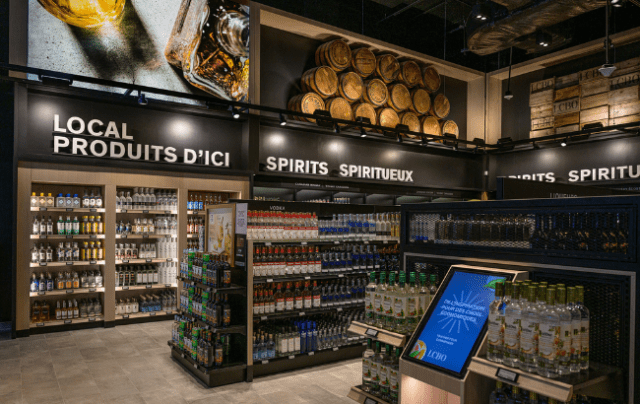Spirits suppliers file lawsuit against LCBO
A collective of Canada’s spirits suppliers has launched legal action against the Liquor Control Board of Ontario (LCBO) after receiving multi-million-dollar tax fines.

In May 2024, trade body Spirits Canada claimed the government-controlled LCBO was ‘clawing back payments’ on products that were sold last year, based on claims that Quebec’s liquor board, Société des Alcools du Québec (SAQ), received similar products for a lower price.
The LCBO had retroactively applied Section 14, which demands the lowest price in the country from suppliers, when its own legislation invokes price increases every year, Spirits Canada said at the time.
Spirits Canada represents spirits companies such as Bacardi, Diageo, Brown-Forman, Campari, Corby Spirit & Wine and Rémy Cointreau, which make up almost 70% of all spirits sold in Ontario.
The organisation said suppliers have been trying to resolve the issue of the LCBO ‘suddenly levying tens of millions of dollars in penalties for products sold more than a year earlier’.
The LCBO quickly responded to the allegations at the time, claiming that consumers are being ‘overcharged by some suppliers’ and face an ‘unfair advantage’, noting that Ontarians pay up to CA$40 more on certain products compared with other provinces.
The trade body claimed that the suppliers had proposed solutions, while the LCBO had failed to do the same and proceeded with ‘retroactive penalties’.
After revealing that suppliers had been ‘blindsided’ by a multi-million-dollar retroactive tax bill in May, Spirits Canada said the LCBO had ‘doubled-down by imposing retaliatory measures on those specific suppliers’.
The collective has now filed a court application with the Ontario Superior Court of Justice to declare the LCBO’s action as ‘invalid and unenforceable’.
Simultaneously, the suppliers have informed the Competition Bureau of Canada that the LCBO’s enforcement of this pricing term is an ‘abuse of dominance with major anti-competitive implications for pricing and product choice impacting all Canadian consumers’.
‘No other options’
“As spirits suppliers, we have always appreciated our longstanding strategic partnership with the LCBO,” said Cal Bricker, president and CEO of Spirits Canada.
“We are disappointed that we have had to refer the LCBO’s contradictory policies to the courts, but at this time, and amid retaliatory measures by the LCBO, we have been left with no other options.”
While spirits suppliers set their own prices, the trade body noted that 75% of the price of every bottle sold in Ontario is composed of taxes and a ‘generous mark-up’ from the LCBO.
Under the ‘Minimum Pricing of Liquor and Other Pricing Matters’ regulation, the ‘social responsibility pricing model’, the minimum price of alcohol in Ontario increases every year by law. In 2023, this rose by 5% – said to widen the gap between Ontario and other provinces.
‘Highly misleading’
In a statement published yesterday (24 July), the LCBO called the claims made by Spirits Canada ‘inaccurate and highly misleading to consumers’.
The statement continued: “The fact is that when suppliers do not honour our legal agreements on consumer protection, the only people that lose are Ontarians.
“By breaching the terms contained in our Purchase Order Terms and Conditions that require that LCBO receive the same or lower price as other Canadian liquor jurisdictions, LCBO customers are unfairly made to pay more for beverage alcohol than other consumers across the country. These are not retroactive tax bills, fines, nor penalties, but rather pricing chargebacks levied in accordance with terms of our long-term contracts.
“Our position remains that it would not be fair to let a few suppliers gouge Ontario consumers.”
The LCBO said it would not comment further until the matter was resolved.
The legal action follows weeks of disruption for the province’s liquor board. The LCBO recently provided an improved contract offer to union workers to end a 14-day strike that caused the closure of its stores – the only place where Ontarians can buy spirits, besides distilleries.
The Ontario government also recently brought forward its plan to allow convenience stores to sell spirit-based ready-to-drink beverages.
Related news
Mark Anthony Group faces fine for 'unfair promotion'
